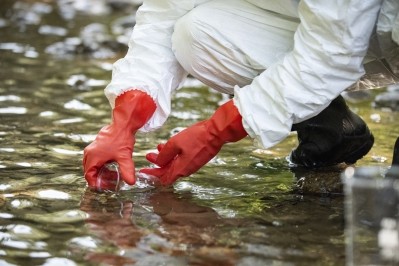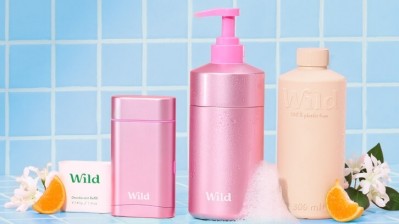Plastic Soup Foundation founder: ‘Microplastics in cosmetics is a design error, so get it out of there’
![The European Commission (EC) is due to finalise its proposed ban on microplastics in cosmetics, with a 12-year transition period for certain nail, lip and makeup products [Getty Images]](/var/wrbm_gb_food_pharma/storage/images/_aliases/wrbm_large/publications/cosmetics/cosmeticsdesign-europe.com/article/2023/03/02/microplastics-in-cosmetics-eu-ban-must-be-faster-says-ngo-plastic-soup-foundation/16216495-2-eng-GB/Microplastics-in-cosmetics-EU-ban-must-be-faster-says-NGO-Plastic-Soup-Foundation.jpg)
Last month, 15+ beauty brands and associations signed an open letter to the European Commission (EC) calling for a faster and more complete ban on intentionally added microplastics in cosmetics in the EU. The Commission was currently reviewing existing microplastics legislation under the European Chemical Agency ECHA’s REACH regulation and was set to publish a final review for European Parliament to vote on in the coming months.
Under the current microplastics ban proposal, cosmetic companies would have 36 months to report use of microplastics and various transition periods to remove them – from four years for rinse-off to 12 years for certain lip, nail and makeup products.
The 15+ beauty signatories were taking issue with these “exceptionally long” transition periods, stating they said had “no justification”.
“For years now, we have worked tirelessly and successfully to remove microplastics from our products, whilst some brands have never used microplastics in any of their formulations. We have demonstrated that microplastics are not essential in producing a wide range of cosmetic and beauty products. It is about the willingness to do so,” the signatories wrote.
‘Tougher measures’ for a microplastics ban needed
The open letter and call from brands to shorten transition periods had been welcomed by a raft of NGOs, including marine conservation non-profit Plastic Soup Foundation.
Speaking to CosmeticsDesign-Europe, Maria Westerbos, founder and director of Plastic Soup Foundation, said: “The rumoured phase-out periods of more than 10 years is totally unacceptable. We, along with other environmental organisations, are calling on the European Commission to come up with tougher measures that will take effect quickly.”
“…Every day counts, because millions of microplastics enter the environment and form a threat for the planet and everything that lives on it. We can easily prevent this, as the plastic-free brands show us. The longer these unnecessarily polluting products stay on the market, the more microplastics enter the environment where they stay forever, entering the circle of life,” Westerbos said.
For beauty, the human health impact was also a key concern with microplastics, she said, because many of these products were used directly on skin, lips and eyes.
“Microplastics in cosmetics is a design error, so get it out of there (…) This is all about maximum profits at the expense of people and planet.”
Major beauty brands still using micoplastics and nanoplastics
Asked how big the problem of microplastics was in beauty and personal care, she said whilst environmental pollution of microplastics from cosmetics was “relatively small once compared to big landfill dumps”, there was the human health impact to consider. And she said many leading brands, and thus a large number of products on the market, still contained either microplastics or nanoplastics.
Last year, Plastic Soup Foundation conducted a study on the presence of microplastics in more than 7,000 different cosmetic and personal care products. Results presented in its report ‘Plastic: The Hidden Beauty Ingredient’ showed that nine out of 10 major brands still used microplastics and nanoplastics in products, accounting for 87% of products on the market under these brand portfolios.
The major brands investigated were Axe, Dove, Elvive/Elseve, Garnier, Gillette, Head & Shoulders, L’Oréal Paris, Nivea, Oral-B, and Rexona. Plastic Soup Foundation had used a traffic light system with red, orange and green demonstrating the extent of microplastics present in product formulas. Red products contained microplastics as defined by research from UNEP, TAUW and ECHA; orange products contained ‘sceptical’ microplastics such as synthetic polymers that lacked sufficient information concerning risks; and green products contained no known microplastics or ‘sceptical’ plastics. Of the 7,000 products analysed, only a minority could be categorised as green for each brand.
Madhuri Prabhakar, microplastics campaigner at Plastic Soup Foundation, added: “We all deserve to live in an environment free of microplastics, whether on our beaches, in the air we breathe or in our products – especially when microplastics are not necessary. Brands like Naïf, Weleda, Neals Yard, Laboratoire Léa Nature and Beauty Kitchen, who have signed this letter, are sending a clear message to EU Member States: alternatives to microplastics already exist.
“It is high time the rest of the cosmetics industry embrace those alternatives. There is no reason to delay the EU restriction any further or allow for excessively long transition periods,” Prabhakar said.




















